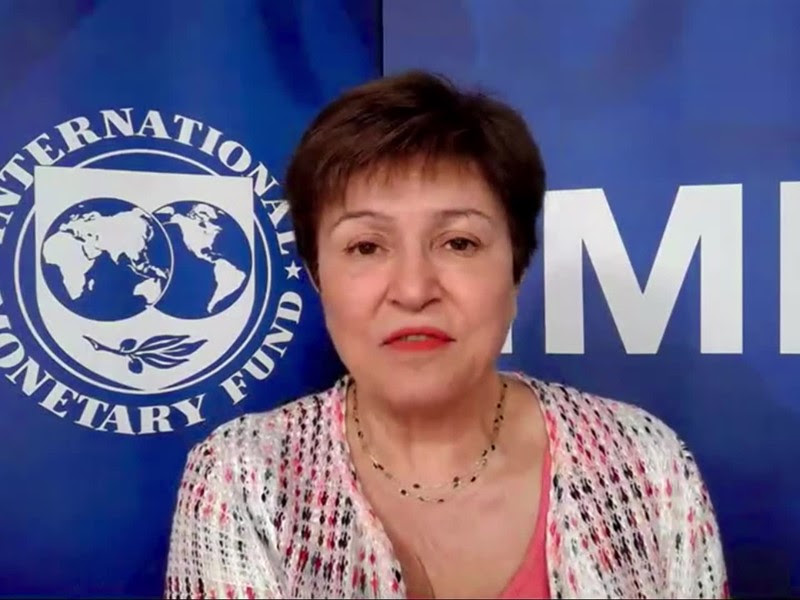IMF Georgieva Coronavirus Recovery

The world needs to make positive changes and set the path for sustainable recovery in the wake of the COVID-19 pandemic, International Monetary Fund chief Kristalina Georgieva said Thursday.
Speaking virtually to the members of the US Chamber of Commerce she said that the lesson from the pandemic should not be to shut down global trade or cooperation.
“This Great Lockdown must not lead to great protectionism, because if that happens, we know what the implications are going to be. We will be poorer. We will see costs going up. The benefits of technological advancements are not going to flow to the poor countries as they should. And it would be a world that would be, unfortunately, also a less secure world,” she said.
She warned that although oil and coal prices are low along with commodity prices in general, now is not the time to use more of those energy sources which would put more carbon in to the atmosphere.
“One of the issues that we have to be mindful of is that we cannot get to a point in which we can transfer pollution from one place to another. We cannot deal with climate change unless there is integrity in the global community. We have seen the business benefits of sustainability. We know them,” said Georgieva.
In fact, current low prices give a window of opportunity for countries to reduce subsidies to oil and gas producers. She also said that now is a good time to also consider raising carbon taxes as countries will need to bring in revenue to offset current emergency spending.
Georgieva addressed concerns from the members of the US Chamber of Commerce by saying that studies show that supporting a conversion to green energy is ultimately good business.
“Companies that are committed to sustainability and to a more inclusive growth, they by and large, do better. We know that there are businesses that benefit tremendously from environmentally sustainable practices, whether we talk about fisheries or the health of our oceans,” she said.
“We talk about sustainable agriculture and our food security, or we talk about the opportunities of climate mitigation. These are all fantastic business opportunities,” said the Bulgarian head of the IMF.
“We also know that unless we act collectively, we do face the risk of a new form of tariffs,” she went on to warn.
“Europeans are talking about border tax related to protecting their industries against those that do not take climate measures seriously, which would which would create yet another avenue for attack on what is so valuable for us. And it is open and inclusive trade.”
A full transcript of the event and IMF work and studies on climate change can be found at IMF.org.





